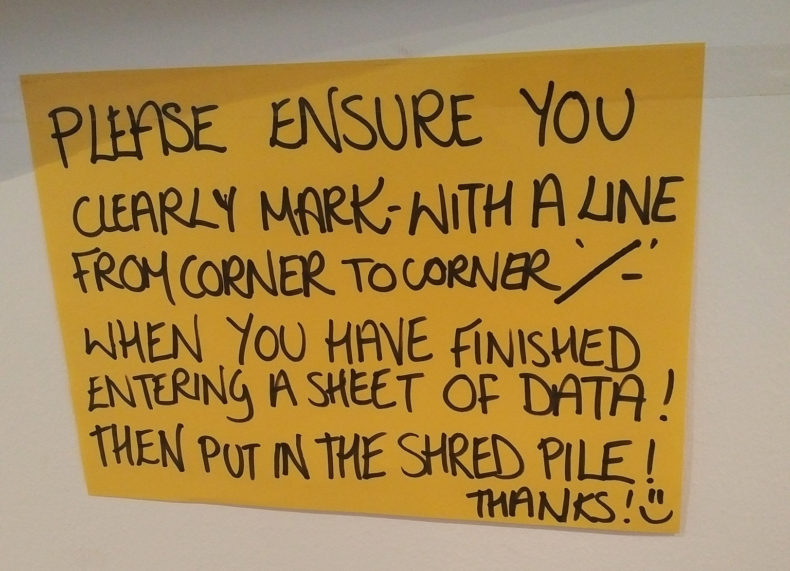Why do so many political campaigns handle data so badly?

If you want to make me wince and are neither into physical violence nor have an alligator to hand, ask me about cases I’ve come across of political campaigns or parties losing key data about voters.
Data is the organisational lifeblood of parties and campaigns, yet it’s often treated so poorly and even lost.
The sort of losses I’ve come across so painfully regularly aren’t the ones that get media headlines with USB drives left on trains or personal data about voters emailed to a radio station rather than a mailing house by mistake (though the latter did once happen to an unfortunate Conservative).
Rather they are the story of losses that are all the more dangerous and debilitating because no-one notices them until someone like me starts poking around. Or in the most wince-inducing case, when someone like me stops poking around and subsequent people first stop using and then completely forget about lists of tens of thousands of interested members of the public who want to hear from a political party.
The heart of the problem is that when it comes to electronic data it is so easy to make a mistake and so easy not to notice it. A pile of undelivered leaflets in an office has an obvious physical presence that shouts out ‘something has gone wrong’ (as long, that is, as the office is tidy enough for them to be noticed – but the problem of campaign ‘organisers’ who think mess is a badge of honour of working hard is another matter).
But a pile of email addresses that never get used because the selection filter missed them out by mistake? That requires more diligence, more checking and an all round more quizzical (or paranoid, if you prefer) attitude to spot.
Mislaying, misusing or neglecting physical objects is easier to spot and in volume harder to do than worse sins on a larger scale with electronic data. It takes an awful lot of effort to shred several hundred sheets of records by mistake. It takes only a few thoughtless keystrokes to do the same to electronic data – and even worse, it is so easy not to notice so that even if you do have a backup, it never gets used because you never known you needed it.
That is why keeping track of some key numbers about your data is so valuable. The Parliamentary by-election campaign which nearly lost all the telephone canvassing data in a ward due to the wrong files being overwritten was, for example, rescued by the nightly check of total canvass data broken down by ward which showed an unexpected drop. If there had been no checking, there would have been no clue that something was wrong and all that valuable time, effort and data would have gone to waste.
Details matter and details rapidly add up. As Ken Mehlman, George W Bush’s Campaign Manager, put it speaking about campaigning in general:
Lots of little things add up to one big thing.
As Ed Maxfield and I wrote in 101 Ways To Win An Election, data is a campaign’s organisational lifeblood. Several chapters in our book go into this in more detail, but the key lesson requires far less than that.
You need data, which means you need to accumulate, care for, keep and check data. Or in one phrase: be paranoid about the state of your data.
Leave a Reply